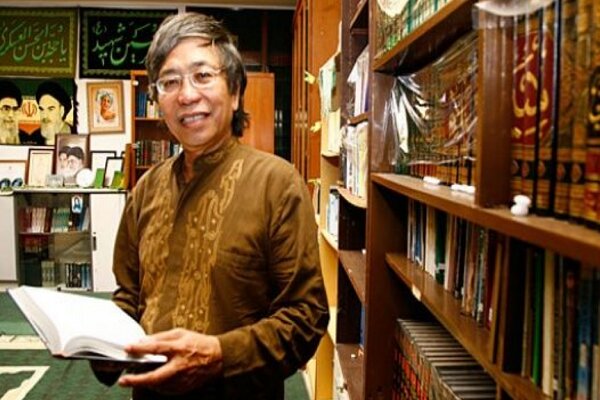Jalaluddin Rahmat founded modern Sufism

On Monday afternoon, I received a short message from a friend of mine containing sad news that Jalaluddin Rahmat had passed away.
Kang Jalal, as he was commonly called, was an Indonesian Shia Muslim scholar whose ideas influenced the country in the 1980s and 1990s. Social media was soon filled with messages of condolence for the death of this Islamic litterateur by thinkers and politicians, as well as people who were companions of him or had many memories in common.
While I was grieving, I remembered my memories of 1996-98, when I was studying at Shahid Motahari High School in Jakarta, whose director and founder was Jalaluddin Rahmat. The high school and its institute were founded in 1992 and soon became one of the most prominent schools in Jakarta. At this school, like other students, I discovered my interests and talents using the new teaching methods that Mr. Jalal provided.
In fact, the dynamic and modern educational atmosphere of this school made its graduates have higher abilities compared to other students. Kang Jalal, for example, invited various religious and political figures to come to the school to discuss current issues and different religions and beliefs. The freedom of expression and freedom of opinion was practically a basic part of this school and its education program. Another issue that we witnessed in the school of Jalaluddin Rahmat was the large number of books and the very large and valuable library that Jalal himself had collected.
Jalal's interest in reading had enriched the library. Jalal's son always told him that for you, a heaven is a place full of books. Jalaluddin Rahmat also read a lot of books and since he was fluent in English, Dutch, French, German and Persian, he was always aware of the latest scientific sources in the world, so his writings and works can be considered as more in-depth articles than other thinkers. Today, some of Jalaluddin Rahmat's books are among the textbooks of the highest-rank Indonesian universities.
This Islamic thinker conducted several writings in the field of Sufism. Jalal's acquaintance with Sufi ideas began in 1964 when he attended a conference in Colombia on Haider Bagir and Andang Saifuddin. At the time, he became acquainted with Iranian thinkers and the concept of Sufism. This acquaintance led to a visit to Iran and holding meetings with Iranian thinkers. During this visit, he visited the tombs of great Sufis such as Bayazid Bastami, Imam Mohammad Ghazali, Athar Neyshabouri, Saadi, and Hafez. After this trip, Jalal's approach to religion became more mystical, and he wrote several books on Sufism and mysticism.
Regarding Jalal's approach to Sufism, it should be noted here that Jalal's view of Sufism was novel and described by himself in his works. Jalal did not have a traditional view of Sufism, in contrast, he took mysticism from Sufism and adapted it to the updated concepts of religion. Jalal in fact founded modern Sufism. By reproducing mystical concepts of Sufism, Jalal sought to apply them to society in order to spread Islamic ethics throughout society.
He was able to conduct this in Motahhari School, which he managed, and with his unique approach, he was able to create both order and Islamic ethics in the student community. One of Jalal's actions in this way was to use the symbols and manners of the Sufi elders. Eventually, Jalal developed his theory in the following years and wrote books on the relationship between ethics in civil society and jurisprudence, and religious psychology with a mystical approach.
Although Jalaluddin Rahmat has been introduced to the scientific community as a scholarly figure, Indonesians knew him for his services for the underprivileged and poor people. His role in this way is very special and unique.
Jalal always said to the students of his school, "We can find God in delivering service to the people." From the foundation of his school, he always sought to serve the deprived. Of course, Jalal did not hold to chanting.
He started a campaign called "Spirituality Camp" in 1994 to register volunteers to provide free services to disadvantaged families in remote areas.
In fact, volunteer students went to deprived areas for a week to provide free educational and cultural services. Kang Jalal himself came among the volunteers every night during the camps and held lectures and discussions on religious and philosophical concepts.
In fact, he sought to elevate himself, his students, and his community scientifically, morally, and spiritually.
Today he is no longer with us, but works of him and those of his disciples show that his path will be continued.
This article was initially published in tirto.id
Leave a Comment